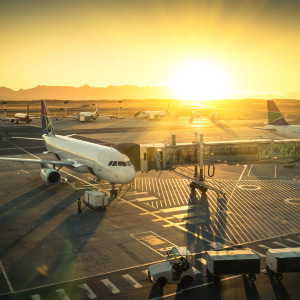America’s Big Three domestic airlines have spent $50 million lobbying against Open Skies agreements in just the last three years. They’ve done this at the advice of a veritable Who’s Who of big-name Washington consultants, many of whom are my fellow Democrats. They would be wiser to listen to their passengers who are telling them every day on social media and in survey after survey that air travel in America is as bad as it has ever been.
Hardly a week goes by before yet another video goes viral of a couple or family being kicked off a flight due to airline overbooking. Dogs have been dying. A guy was stung by a scorpion! And now the FBI has released a chilling warning that sexual assaults during flights are on the rise.
No one in America, it seems, looks forward to flying.
And yet, instead of investing to improve their customers’ experience, the Big Three have bankrolled their quixotic campaign to alter or end Open Skies agreements with other countries. Open Skies agreements between countries are policies that seek to minimize government regulations and insert free-market principles into the airline industry. The Big Three have challenged these agreements with countries such as the United Arab Emirates and Qatar.
That’s not all. Kevin Mitchell of the Business Travel Coalition writes, “In addition to their $50 million failed lobbying campaign against Gulf Carrier choice, the Big Three also stood shoulder-to-shoulder attempting to block competitive entry by Norwegian Air International and Norwegian UK Limited in ‘their’ U.S.-Europe market.”
Suffice it to say, they don’t welcome competition on international flights; they’d rather protect their bottom line at all costs — even at the expense of their own customers. But as columnist Glenn Reynolds wrote in USA Today, “Protecting American carriers from competition means inflating American prices and reducing consumers’ choices — and airlines incentives to provide good, or even decent, service. (Like the old Bell System, their motto seems to be: ‘We don’t care, because we don’t have to.’)”
The history of free-market competition shows us plainly that when companies compete for customers, costs come down, services improve and customers win.
In June the U.S. government reaffirmed its Open Skies agreements with the UAE and Qatar. American Airlines chairman and chief executive Doug Parker said, “We are very pleased with the result of the talks between the U.S. government, the UAE, and Qatar, and we’re grateful for what the U.S. government was able to accomplish there.”
Nevertheless, there does not appear to be a change in the Big Three’s lobbying disposition toward Open Skies. The real test will be how honorably they accept these agreements and divert their millions of anti-Open Skies lobbying dollars toward enhancing their customers’ experience.
There’s an old cautionary tale in Washington about a dog food company that rolled out a new product. The owner hired the best consultants, the best marketing team, and the best advertising wizards. Everything these gurus told the owner led him to believe he had a winner on his hands. But none of their advice mattered — the dogs just wouldn’t eat the dog food. He should have listened to his customers.
When given the choice between listening to their consultants and listening to their passengers, America’s Big Three airlines should avoid making the same mistake as the hypothetical dog food company.

